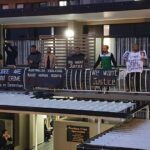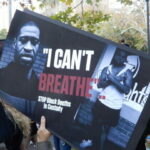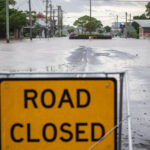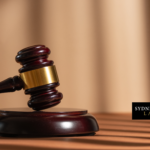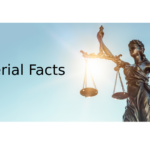“Julian Did Redact”: An Interview With Lawyer-Journalist Mark Davis
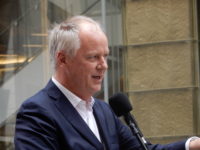
The line up of renowned Australian journalists on the stage at the Martin Place Amphitheatre on 24 February was impressive. Gathered for a rally, they included John Pilger, Mary Kostakidis, Quentin Dempster, Wendy Bacon, Andrew Fowler and Mark Davis.
They were there to speak in support of fellow journalist Julian Assange, on the first day of his appearance at London’s Woolwich Court, in proceedings that will decide whether the Australian citizen will be extradited to the United States to face espionage charges adding up to 175 years.
Not only is the Trump administration fixing to lock Assange up for the rest of his life, but it has recently revealed that it plans to do so under “special administrative measures”, which means he’ll be completely shut off from the outside world.
As each of the speakers at the Don’t Extradite Assange rally addressed the crowd, there was a common sentiment expressed. And this was that there’s a grave injustice being perpetrated upon an Australian journalist of stature and there should be much greater public outcry so as to wake the government into action.
“He did redact”
Mark Davis described the publishing of over 700,000 classified US government documents leaked to Wikileaks by Chelsea Manning as “a great act”. And he ought to know, as he was present at the Bunker in London in 2010 as the first major release – the Afghan War Logs – was going to press.
Indeed, Mr Davis gave a speech at a Sydney Politics in the Pub last year, where he used his insider knowledge to refute many of the assertions that had been made about Assange’s level of professionalism during a recent Four Corners documentary.
And he debunked the myth that Julian didn’t redact any of the names that were detailed in the leaked files prior to release, which is “the slur” that Davis asserts is underpinning much of the reasons why Assange now finds himself in such a dangerous position.
The legal trade
Of course, Davis, a multi-award winning journalist, has been known to draw the ire of foreign politicians himself. Indeed, the former SBS Dateline presenter picked up a Gold Walkley for Blood Money, an investigation into Indonesian ministers funding militias in East Timor.
While today, Mr Davis works within the legal profession, where he has a focus on international matters and criminal law. And he’s about to represent long-term refugee and East Timor activist Stephen Langford in court.
Sydney Criminal Lawyers spoke to Mr Davis about the great Australian silence around the current injustices being perpetrated upon a fellow citizen who made one of the greatest contributions to journalism in recent decades, and the myth that’s underpinning his plight.
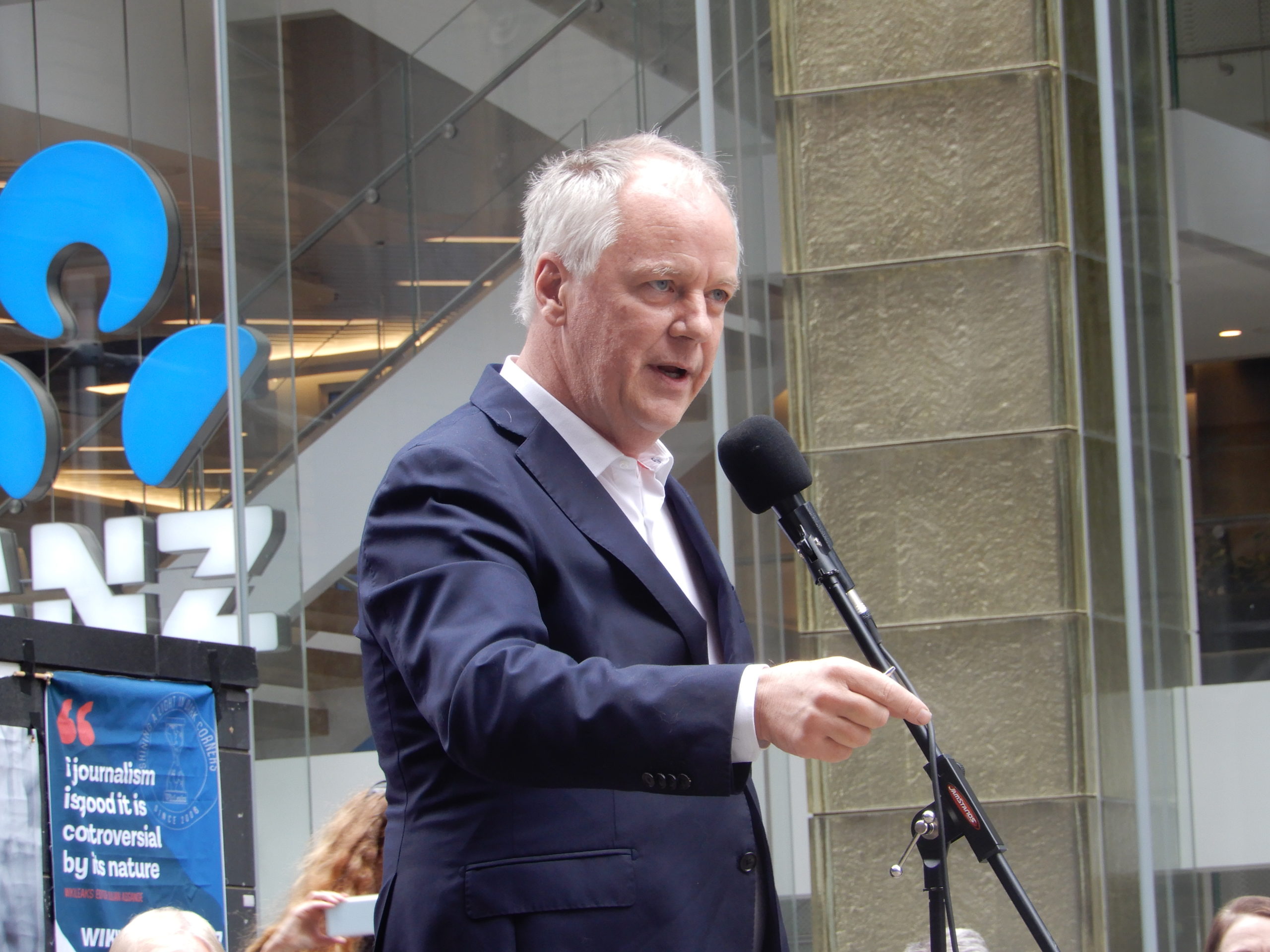
The first days of Julian’s extradition trial took place last week. His legal team made some of the same points that you made at your Politics in the Pub session last year around leaked passwords.
The US countered this by asserting that proceedings should stick to the laws around extradition. And meanwhile, Julian was made to sit by himself away from his lawyers, behind a glass-enclosed dock. Mr Davis, what do you think about this extradition trial?
It’s pretty chilling. It’s the nature of the charges. I’m surprised it got this far. These charges are patently absurd. If these charges can be applied to Julian, it’s not being too dramatic to say, they can be applied to anyone.
These sorts of espionage laws in America have never been used. But, they’ve been dusted off to be applied to a man who did a great act of journalism, and made a great contribution to world knowledge.
He may have expected some impact – perhaps a travel ban on going to America. He would not have expected a whole new phase of legal precedent, where an intelligence agency of one country can reach into another and pluck someone out of it for a breach of their laws. It’s unparalleled.
If Julian had been arrested at JFK airport, okay, he might have come within American jurisdiction. But, now they can do it across jurisdictions for crimes that they themselves define. This is not murder. It is not paedophilia. It is not someone running from a bank heist.
There has never been anything like it. It is quite literally without precedent. And that’s what surprises me, that people have given it some air of normality, as if it’s a normal thing that this sort of procedure happened.
It is a radically dangerous action – clearly a radically dangerous action for Julian Assange. But, it’s a very dangerous action for all of us.
Israel may wish to reach into Belgium to pull someone out. Indonesia would love to reach into Melbourne or Sydney and pluck people out who they regard as having offended state law in some way.
As a precedent, it’s horrific. And it surprises me that there hasn’t been more reaction on that level, beyond the discomfort or mistreatment of Julian in this current hearing.
Last August, you gave a Politics in the Pub session, where you poked holes in some of the ideas in a recent Four Corners report on Assange. Broadly speaking, what do you think about the way he was portrayed?
When you make an effective slur against somebody – and it’s one that is compounded for many years until it builds – it starts setting into concrete. And the most effective slur against Julian has been that he failed to redact the documents.
In fact, it’s in the indictment. Of the 17 espionage charges against him, probably four or five of them refer to him failing to redact the documents. And essentially, they’re referring to the Afghan documents.
Now, I can say as a matter of fact – as an eyewitness observation – Julian did redact. He’s never been given credit for it. And it absolutely astounds me.
This casual slur is being repeated by journalists ad nauseum around the world, as well as by American officials. And no one has ever bothered to establish whether it’s true or not.
Here’s the force of a lie that a thousand journalists have just casually said. It’s not with any venom. They just google it, and there it is. It says he didn’t redact the documents, and they repeat it. It gets repeated on the ABC Australia, very casually.
Now, that casual lie is then accepted by American prosecutors. They’ve put that in the actual indictment. This is how dangerous it is to get something wrong in a case like this – and to repeat it.
It has been repeated so often, it leaves me speechless. I don’t know what else to say. That is absolutely wrong that he didn’t redact. He did redact.
And he did it alone. It wasn’t any of the journalists that were starting to gravitate around him on the eve of releasing that material.
So, that slur – which is the most common slur that journalists apply to say that he isn’t a journalist – is simply wrong.
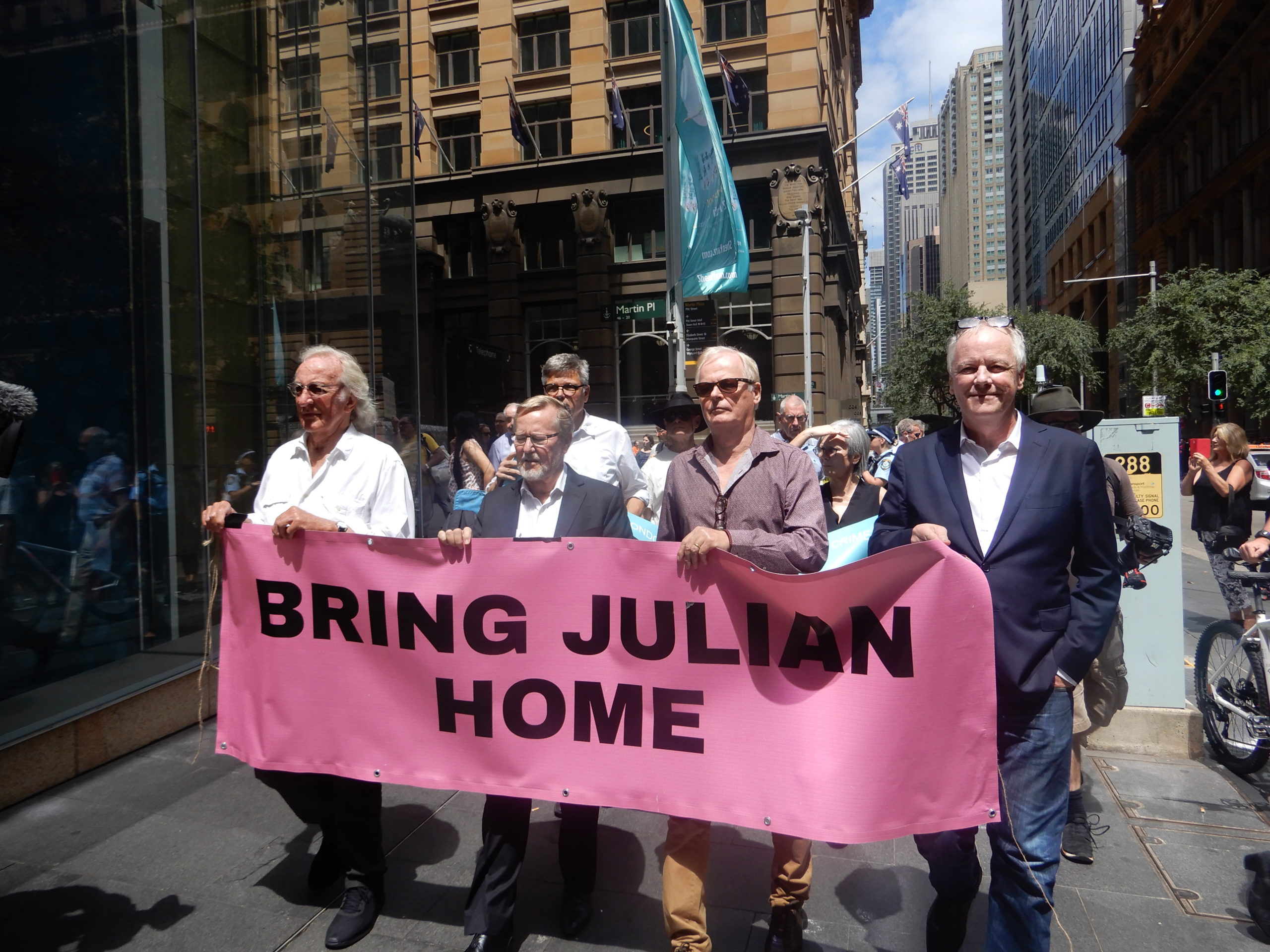
At the recent Sydney Assange solidarity rally, you spoke in his support, alongside John Pilger, Mary Kostakidis and Quentin Dempster. Phillip Adams sent a message of support because he couldn’t be there.
So, we’re talking about some of the most respected Australian journalists standing in solidarity with Julian. However, this same level of support is not coming from most of the mainstream media. So, what’s happening here?
Peter Greste said he doesn’t see him as a journalist. It was a very cruel thing to say. And a very dangerous thing to say. But, a lot of journalists agreed with it.
The reason why they agree is the idea that he doesn’t redact – he just dumps material. That’s the essence of the journalistic snootiness towards Julian.
Now, he was inclined to publish large amounts of material, undoubtedly. But, it’s not true that he didn’t redact it.
In fact, he went through it. And this is how Wikileaks continues to do it. And I don’t know that from direct observation, but I do know from direct observation that he took out 10,000 names from the Afghan War Logs.
I know from second hand information that all subsequent releases were redacted, when it appeared that naming an individual might endanger their life. They did it, and yet they’re being criticised for it.
In that Four Corners piece, I remember Alan Rusbridger saying the difference between Assange and the other journalists was that Julian was extremely cavalier in his attitude to sources, whereas the Guardian journalists had a far more nuanced approach.
It was that single comment that probably popped my cork more than anything. It’s simply not true.
I think journalists hide behind that distinction: what distinguishes them from Julian Assange is that single difference, that he merely dumped material, while they showed nuance and craft in their work.
What can I say? I and many other journalists – many excellent journalists – disagree with that view. But, it would seem that we are not in the majority.
Mr Davis, you were there with Julian in the Bunker, when the Afghan War Logs were being released. There are those that assert he had no business in releasing them. But, you’ve described it as “a great act”. Why’s that?
It’s one of the most remarkable releases of information in a couple of generations – perhaps more. Between Afghanistan and Iraq, these were murderous – and in the case of Iraq essentially illegal – actions. And to reveal the full scale in its complete detail was an enormous service to the world.
It is what journalists do. We reveal that sort of information. We go looking for that sort of information. We hope to get a snippet or two, in order to gaze behind the curtain and show what’s really happening, especially in wars.
Well, Julian tore the curtain right off. And I certainly appreciate it.
You’ve spoken about the wider implications of Assange’s plight for us all. But, what will it mean for journalism specifically if Assange is sent away for the rest of his life?
Unquestionably, this is the single most ominous threat to journalism that we’ve seen. Much more so than any legislation that’s been passed in Australia that’s been a threat to journalism.
If you don’t want to see Julian as a journalist, you must see him as a publisher. And the fact that another country can now reach across borders and grab a journalist or a publisher and extradite them to their country to face their local intelligence agencies for whatever infringements they’ve dreamt up is frankly terrifying.
I worked almost entirely as a foreign correspondent. If I was breaking a big story, it was always nice to get back to Australia and think that I was okay.
If this becomes an international norm, then any number of those regimes that I reported on, could seek to extradite me, either from Australia, or if I was passing through London. Why not?
It’s a complete gamechanger.
And lastly, if Assange ends up in the US, he’ll appear in court on what you’ve described as “cooked charges”. Pilger said last week that there’s a chance for him to be brought back. But, the Australian government is silent on the matter. Mr Davis, what would you like to see happen here?
I’ve got a bit sympathy for the Australian government, to the degree that to have political bravery you need a bit of a groundswell or a bit of wind in your sails. And there’s not a lot of wind in their sails. It’s strangely quiet on all levels.
Of course, if the media is not pushing for it, I wouldn’t have great confidence in the local members starting to push for it. They will eventually. The sad truth is it will be when the decision is made, and he’s about to be shipped off. Then there will be a hue and cry.
But, I am more disappointed in Australian media and the commentariat, than I am in the Australian government at the moment.
There’s nothing in it for the Australian government. It’s just silence from their electorates. So, there is a lot of work to be done before we start getting too snarky about the Australian government.
But, clearly, they should be demanding that he not face these charges. They are against the spirit of Australian law, which is pro free speech and pro media.
I don’t think there’s any particular animosity from any government minister. No one cheering this on.
It’s more silence from both sides of politics, including the conservative side. No one is wanting this to happen. There is no great hatred for Julian, or being glad to support the Americans.
There’s actually silence, because they’re not too sure yet of what the Australian people think about it. I just think they’re biding their time.



